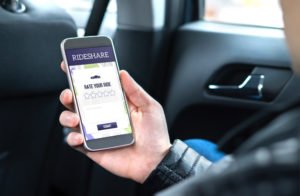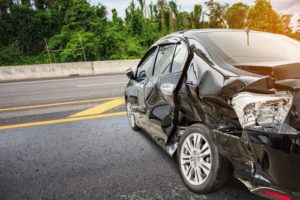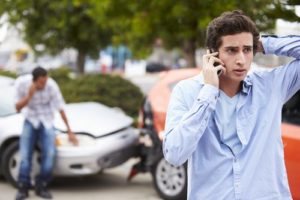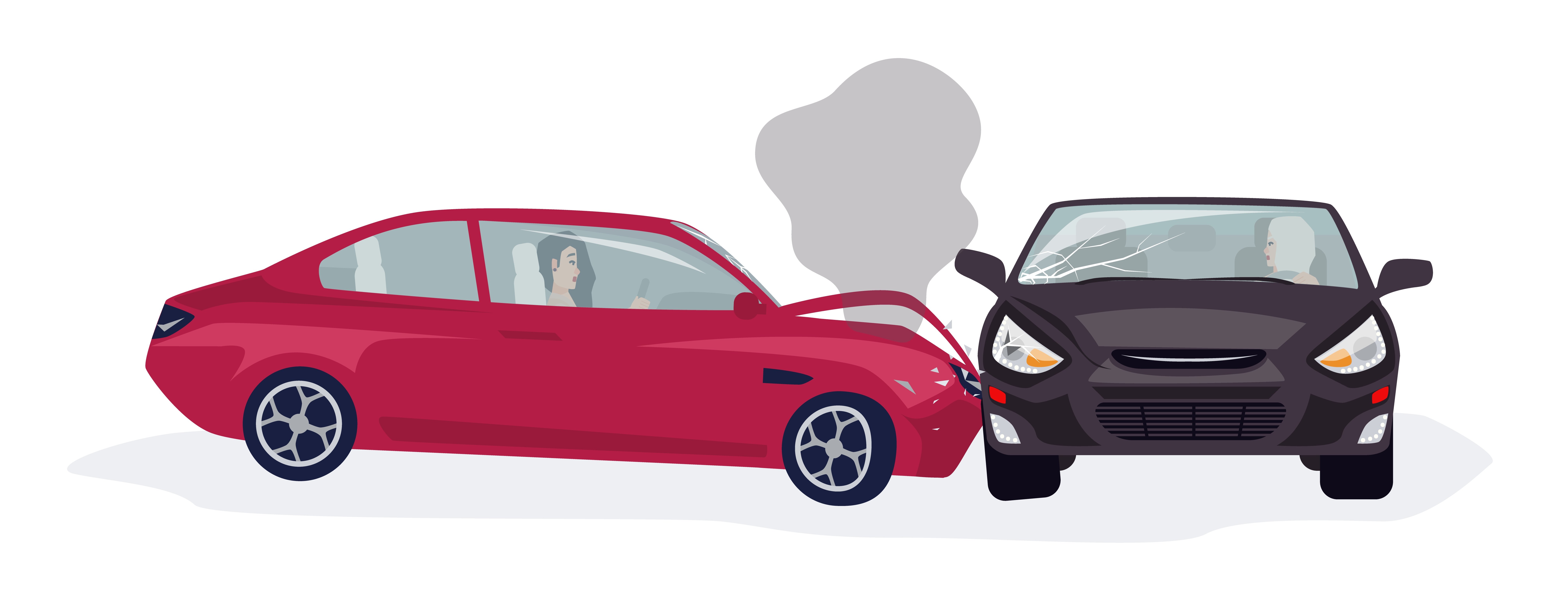
Ridesharing companies have become popular among people who want to avoid the cost and hassle of owning their own vehicles. Instead of making monthly loan payments and having to cover insurance, gas, maintenance, and repairs, customers can simply request a ride when they need one. The growth in ridesharing has led to questions about who is liable when an accident occurs.
If you were hurt in a collision involving a ridesharing vehicle while you were riding as a passenger, while you were driving your own car, or while you were walking down the street, you may have suffered serious injuries. You may have been treated for head trauma, back and neck injuries, broken bones, cuts, and possibly even a lost limb or paralysis.
The medical bills may be overwhelming. In addition, you may be unable to work because of your injuries. You may be able to return to work after receiving more treatment, or doctors may have told you that you are permanently disabled. You may be unable to perform the job that you did prior to the accident and may have to look for a new type of employment, or you may be completely disabled and unable to work in any capacity.
The pain and loss of independence caused by your injuries, plus the financial costs and anxiety about the future, may be taking a heavy emotional toll. You may be having trouble sleeping and may be feeling helpless and lost. You may be struggling to figure out how to get through this difficult time and move forward. All these sudden and dramatic changes may be impacting your relationships with your loved ones.
A Minneapolis ridesharing accident lawyer may be able to help. Ben Crump Law, PLLC, has represented clients across the United States who were hurt in motor vehicle collisions under a wide range of circumstances. Call our office today at (844) 730-0233 to discuss your case with a member of our staff and to learn how we may be able to help you seek justice.
Who May Be Liable for a Ridesharing Accident?
If the ridesharing driver violated a traffic law, for example, by speeding, texting, or driving while intoxicated, he or she may be liable for the collision that caused your injuries. The ridesharing company may also be found liable for the accident if it failed to conduct a background check and hired a driver who had a history of tickets for serious traffic violations.
The driver may also be found liable if the ridesharing vehicle experienced a mechanical failure because the owner failed to properly maintain it. If, for example, the driver ignored squealing sounds and then the brakes failed while you were riding in the car or driving your own vehicle, the owner of the ridesharing car may be found liable for the collision.
A mechanical failure may not have been the driver’s fault. It may have occurred because of a design flaw or a manufacturing defect in the vehicle. In that case, the manufacturer may be held liable for the accident.
If a mechanic failed to detect a problem, or if a mechanic performed a repair incorrectly, that individual may be found responsible for the collision. If a mechanic performed a repair correctly, but a part that was used had a design flaw or a manufacturing defect, the company that produced the part may be liable for the crash.
For a free legal consultation with a ridesharing accidents lawyer serving Minneapolis, call (844) 730-0233
How Can You Seek Compensation for Your Injuries?
Insurance issues are generally straightforward when a driver operating a company vehicle causes an accident. Things can be more complicated when it comes to ridesharing vehicles. A Minneapolis ridesharing accident lawyer can help.
Ridesharing drivers operate their own vehicles, but personal auto insurance policies typically exclude coverage if a vehicle is being used for business purposes. Most ridesharing drivers do not purchase commercial auto insurance because of the high costs, but some have ridesharing endorsements on their personal car insurance policies.
Ridesharing companies provide liability coverage for drivers, but the amount of coverage depends on whether the driver has the app turned on but is not transporting a passenger or whether the driver is carrying a customer to a destination.
Under Minnesota Statute 65B.472, when a driver is logged into a ridesharing company’s app, but not engaged in a prearranged ride, the driver must have a minimum of $50,000 in liability coverage for bodily injury or death of one person, $100,000 for bodily injury or death of two or more people, and $30,000 for property damage to others. While transporting a passenger, the driver must have at least $1.5 million in coverage for bodily injury, death, or property damage.
If the driver was working when the accident occurred, the ridesharing company may be held liable. If not, the driver’s personal auto insurance policy may cover your losses. In some cases, the driver and the company may disagree on the driver’s status at the time.
Minneapolis Ridesharing Accident Lawyer Near Me (844) 730-0233
How a Minneapolis Ridesharing Accident Lawyer May Be Able To Help You
The team at Ben Crump Law, PLLC, can investigate to figure out who was responsible for the collision. If the ridesharing driver was responsible for the collision and was not working at the time, we may be able to file a personal injury lawsuit against that individual on your behalf.
If the driver was working, we may be able to pursue compensation from the ridesharing company. We may also sue the ridesharing company if we learn that the driver had received a series of citations for traffic violations, but the company failed to conduct a background check or kept the driver employed despite a record of unsafe behavior. If we learn that a manufacturing defect or a flawed repair led to the accident, we may be able to sue the manufacturer or the mechanic.
You have a limited amount of time to act. Under Minnesota Statute 541.07, the statute of limitations to file a personal injury lawsuit is just two years. Contact Ben Crump Law, PLLC, today at (844) 730-0233 so we can begin working on your case as soon as possible.
Call or text (844) 730-0233 or complete a Free Case Evaluation form








